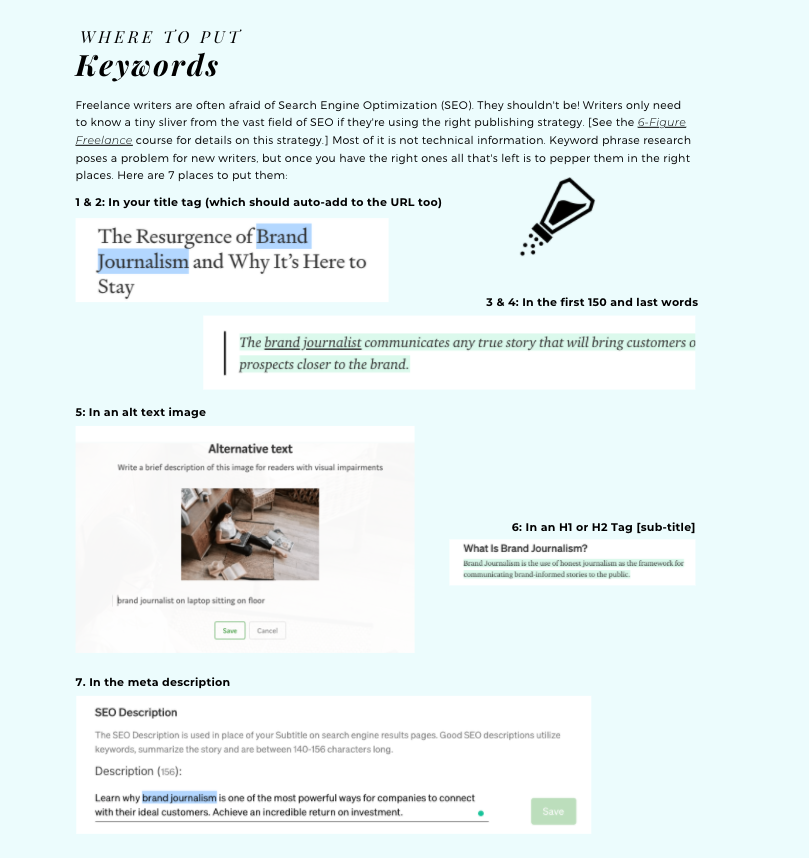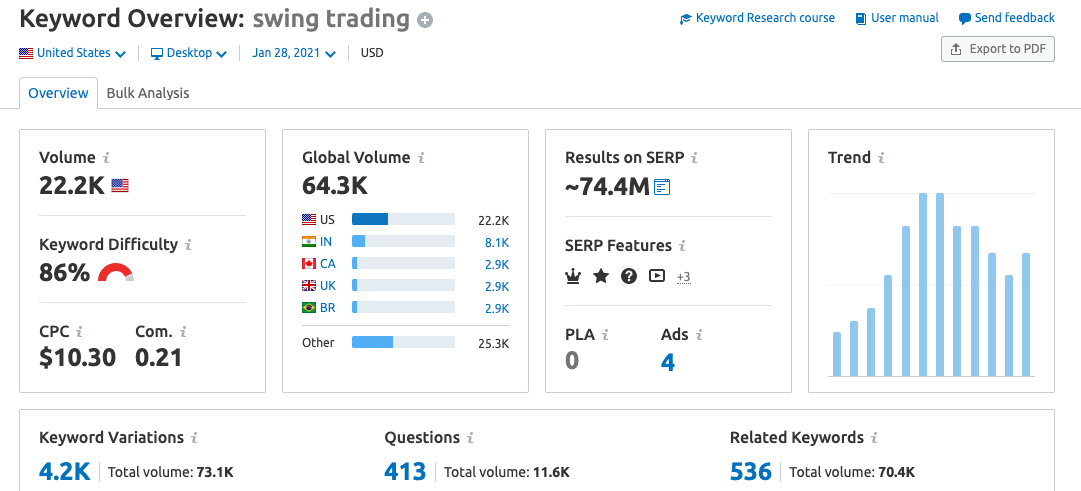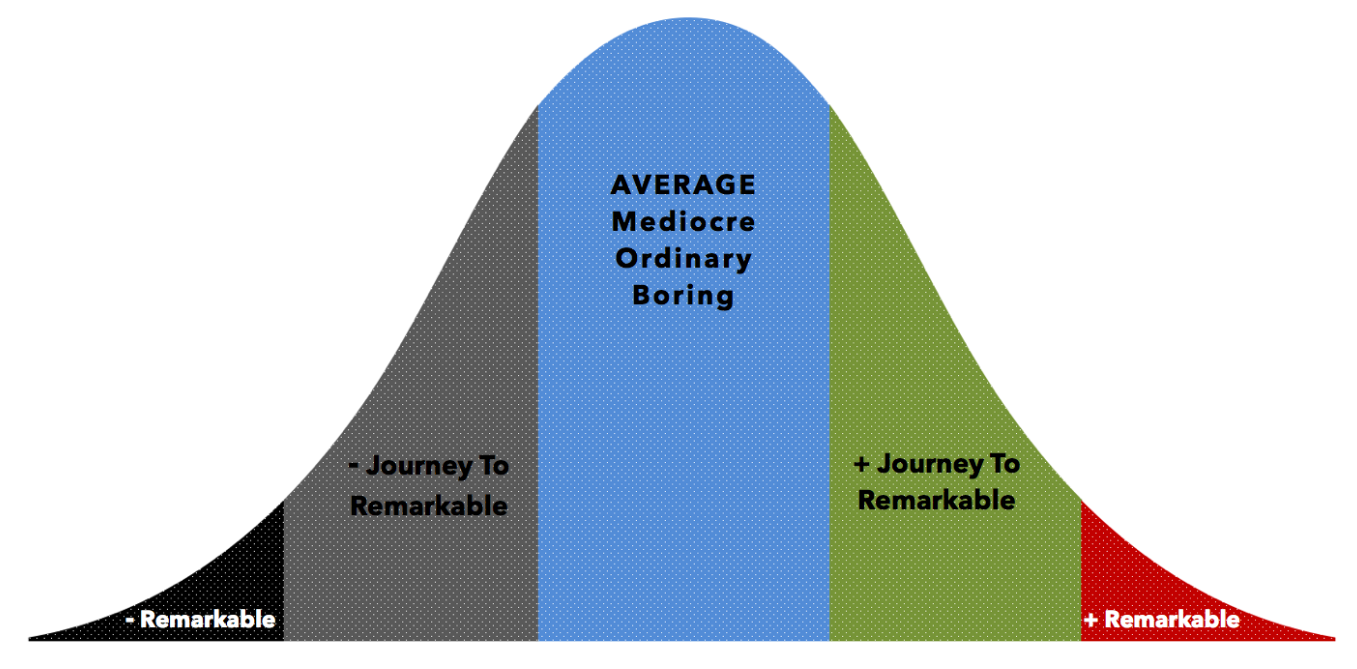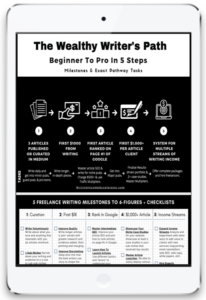There was a time when most freelance writers thought that Search Engine Optimization (SEO) was a mystery: not anymore.
We all know that SEO is important for getting online traffic. Traffic leads to sales. And it’s big business too. Currently, the SEO industry is valued at over $80 billion, so it isn’t going away anytime soon.
For freelance writers, they can flat-out ignore 80% of SEO!
So why does it matter?
For the most part, companies can get traffic online two ways:
- PPC Traffic, or Pay-per-click. These are services used on high-traffic platforms like Google or Facebook. It’s also called SEM, Search Engine Marketing.
- Organic Traffic. This is when you write an article that perfectly answers someone’s question and you rank on the first page of Google. This is SEO. Pick the right keyword, wrap a big article around it, and start ranking.
While PPC can be super complicated, SEO is child’s play.
In this article, I’ll expose the three biggest SEO myths and what to do instead.
But before we get into that, why should you listen to me? First, I’ve been doing SEO for over seven years. Second, I’ve worked with global clients and I’ve had formal training in SEO. And third, I’ve got nothing to directly sell you here. No Captain Obvious blogger’s guide or checklist on how to make money online.
No, in this article I just want my fellow writers to get the most out of SEO and see it for what it truly is: one of many little skills you have to learn as a high-earning freelance writer.
There is nothing to fear with SEO, and there’s something worthier to focus on. Let’s start with destroying a few myths about SEO.
Myth #1: SEO Is Hard
People must understand that the world of SEO is a vast sea of knowledge. It would take a decade to fully understand it and be dubbed a true master at the craft. For example, Google has over 200 ranking signals in its algorithm.
But don’t let that fact dissuade you from practicing SEO.
For freelance writers and Medium.com writers, SEO is very easy. What you need to know about SEO would take me just a couple of hours to teach you. It is a tiny sliver in the giant pie of SEO knowledge.

To start, SEO is divided into three domains: On-Page, Off-Page, and Technical.
Without having to really think about it, you can probably guess what those might entail. On-page SEO covers the things you do on the page regarding text and images. Off-page mainly covers acquiring backlinks. And Technical SEO is a whole other can of worms: it’s the hardest part. Don’t focus on all these things.
What To Do Instead
For freelance writers, they can flat-out ignore 80% of SEO! That’s why I call it Article SEO. You’re only focusing on the 20% that applies to freelance writers.
As
says, if you post on Medium.com that pretty much takes care of a lot of your SEO. It has a domain authority as high as the New York Times, which is how sites are often evaluated. Most company blog sites won’t beat Medium for domain authority or traffic. Go where the eyeballs are.
You also don’t have to worry about the page-load speed or robots.txt problems. Big daddy Medium is going to take care of that technical stuff. There are sites like GT Metrix that show you all the technical errors a site and/or page can be exhibiting. In the past, I had to fix all of these errors and they were a nightmare. That’s not your nightmare though.
All you really have to worry about is a few — I’m talking just a handful — of On-Page and Off-Page tasks.
Worry about the little things like where to sprinkle your keywords. And I can show you exactly where to put your keyword phrases on one page:

The rest of the SEO stuff is just as easy. Simply use the Yoast Real-Time Content Analysis Tool SEO for the rest of the tasks. It will tell you stuff like you need a new sub-heading here or you need another link there. It’s a no-brainer.
The only hard part about SEO is finding the right keywords that you’re trying to rank for. That’s time-consuming and sometimes expensive, but not rocket science. Again, it’s child’s play. I literally teach children how to rank articles in Google. (And they’re outranking you right now!)
Start all your articles out on Medium.com for low-maintenance SEO. It’s only going to get better. Have you noticed that even some of the most random searches retrieve Medium.com results? Go into an incognito browser and test out a few terms. Medium is ubiquitous, so that’s where you should be too.
Myth #2: SEO Is All You Need To Rank
In 2006, Brian Clark of Copyblogger wrote an article called SEO Copywriting Is Dead — and he was right. Remarkable content outranks SEO every time.
Clark went on to say:
I would argue that great copywriting is the new SEO, if it gets you positive links from others . . . blogging is a new form of public relations.
The rest of his article was about how ranking in Google comes down to backlinks. That is, a link back to your article from another (preferably high-ranking) website. To do that, you need to write epic stuff people love. It’s PR. So while all the little things in SEO have an impact, if you don’t have great content to work with none of that matters!
In fact, I’ve ranked tons of competitive keywords in Google that did poorly on SEO grading software. I’m talking C-minus at best. I once wrote an article and ranked for the competitive term “swing trading” for three years straight. The only SEO “secret” was that I published it on Medium.

The SEMrush Keyword Difficulty score was in the 80 out of 100, which was considered “damn near impossible”. As in, it should have taken me years to rank. In five weeks, I was on page #1 destroying every dictionary on the planet as well as thousands of banks, investment firms, and stock trading software companies. For the first two years, I was at the #5 spot on page #1 for the keyword phrase.
And my SEO sucked.
However, I earned backlinks like crazy. That’s what Google sees first. Again, this is PR masquerading as social proof.
What you can’t replace is the human heart, storytelling, and wonderment.
So I maintain that Brian Clark was right. And just why would you believe him? While people go on about the virtues of SEO, he mic dropped that article fifteen years ago and then quietly built a blogging software empire that brings in $33M in revenue every year to prove it. Few SEO companies I know of bring in that much money.
Let’s split some hairs here.
Even though most SEOs will tell you that “quality content” is part of the On-Page SEO suite, I think it’s separate because it’s such a big component.
The problem gets worse when people tell you, “Write high-quality content!” and then not tell you how to do that. It’s like a mantra everyone knows, but can’t explain. Well let me try to explain it in one image:

What’s newsworthy is something remarkable in a good or bad sense. People love “if it bleeds it leads” stories as much as the positive stories like “Homeless Man Wins Lottery And Gives Millions To Local Shelter.”
Remarkable is click-bait gold. Everything else is forgettable.
So in a word, what out-ranks SEO is remarkable content.
I’m strategically replacing the hackneyed term “quality content” with “remarkable content”. The word remarkable is derived from the Old French meaning “to take note of.” That is, it’s something to make a re-mark about. Therefore, you’re talking about it . . . again!
That little chit chat plays quite nicely online, doesn’t it?
If enough people are talking about your stories, and some happen to be influential, you can see now how remarkableness has virality built right into it. No wonder every social platform calls their main asset “stories”. Nothing spreads like stories.
So make content everyone will talk about online.
A remarkable article covers a few things:
- It answers the querent’s question perfectly.
- It’s longer than normal. (Roughly, about 3,000+ words.)
- It’s visually pleasing and easy to navigate. (UI/UX design)
- It’s grammatically near-perfect. (It’s called Grammarly or ProWritingAid.)
- It’s not a copy-of-a-copy. There’s something unique and refreshing about it.
This is just the beginning, but you get the picture. It’s an outlier in a good sense. Not only is it genuinely useful to the reader, it doesn’t sound like everything else. The last thing people want is the 1000th blog post on XYZ.
To reiterate, SEO is not all you need to rank in Google.
What To Do Instead
You need to write truly remarkable content.
So how do you that?
Look at the five items above regarding remarkable content. Also, you can start by Googling your keyword phrase. Carefully read, not scan, the top ten search results (SERPS). What is the average word count? What points are made? What points are left out? How are the articles designed? And the biggie, how many backlinks do they have? (Download the free MozBar for this one.)
It’s your task to knock one of these top 10 articles off the block. Can you write something more remarkable that people would love to share?
Myth #3: The Future Of Online Marketing Is SEO
The other day I read an article that basically plagiarized a popular SEO tactic from seven years ago: The Skyscraper Technique from Brian Dean of Backlinko. As we’ve discussed, it was a copy of a copy.
My thought was, why not just go to the source?
Not only is this technique old (check the source code or date on this video), it’s fairly common. Every SEO worth their salt knows about it and has been practicing it for years. Even with the latest updates, it’s hardly news. I’m not trying to mud sling anyone, I’m just concerned that freelance writers will start to believe the lie: “I must master SEO now!”
In 2006, Brian Clark of Copyblogger wrote an article called SEO Copywriting Is Dead — and he was right. Remarkable content outranks SEO every time.
I’m going to go out on a limb here and say that the future of online marketing is not SEO. Also, the future of lucrative freelance writing is not more SEO.
What To Do Instead
Do yourself a favor: Read all the SEO guides from Brian Dean. I say be gone with plagiarists, and go to the source. Dean explains SEO way better than anyone else, and hear it from him since he invented half of the strategies people use. This will save you a lot of time and you won’t get that second-hand smoke.
And understand this: The future of SEO is Artificial Intelligence.
Big data plus AI — which includes Machine Learning and Deep Learning— is the future of online marketing. It’s also the present. I’ve already been using AI SEO companies and they’re brilliant. They’re almost better than me simply because they have instant access to trillions of data points and patterns. There are still some quirks that result in costly mistakes, but they’re improving their SEO capabilities every second, unlike me.
AI Pay-per-click companies are highly-effective too. The best I can do is use these tools like the robotic arms at Tesla. Be the engineer and manager of this useful technology, not the replaceable competitor.
And in terms of article creation, maybe twenty years from now AI-generated content will be all-too-common. Right now AI content is absolutely terrible. But science is certainly making it better. There are some basic articles that you can’t even tell a computer wrote.

What you can’t replace is the human heart, storytelling, and wonderment.
You can’t clone edutainment, artistry, and creative marketing. No one replaces Ogilvy or Godin in the future. There will always be a place for a real or virtual campfire for anyone willing to tell a story.
Humans started in caves with stories and civilization will die with stories. It’s in our DNA, and apparently we’re all wired for story according to the Penn neuroeconomist Dr. Paul Zak.
Creativity and art are very hard for robots and computers to do . . . for now.
Final Thoughts
So my advice is to just master the basics of Article SEO. Don’t be intimidated, it’s easy. Just study that sliver of SEO that applies to your craft. Publish on high domain authority sites like Medium, so you don’t have to fuss with the bulk of SEO.
Only listen to the real SEO experts (Brian Dean or Brain Clark — any SEO Brian will do), and ignore the rest.
The real value of writers is their craft of storytelling. (For folks like me who work with companies, brand journalism.)
Freelance writers should focus on a higher skill set and that is creating remarkable, story-driven content that transforms the reader.



